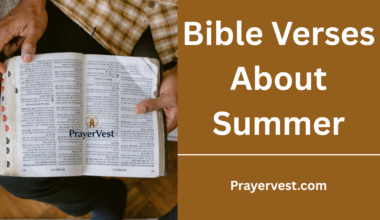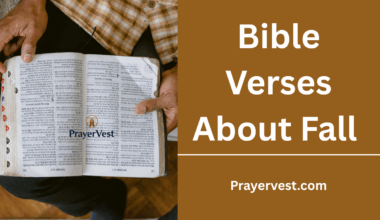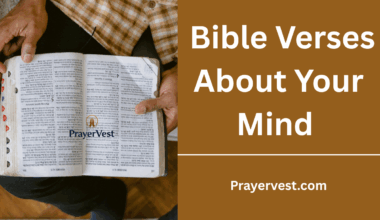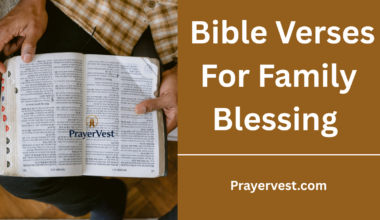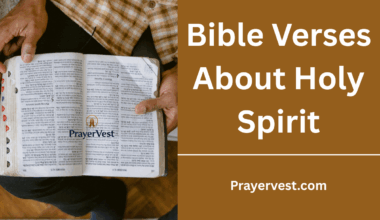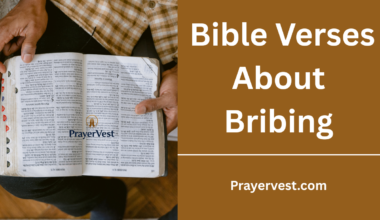Even the most basic encounters can become overpowering due to social anxiety, which fills our minds with self-consciousness, worry, and the fear of being judged by others. It might make it difficult for a lot of people to interact with others, exchange ideas, or even go about their everyday lives. However, for people who are experiencing these emotions, the Bible provides consolation, insight, and inspiration.
The Bible reminds us that our worth is based on God’s unwavering love and approval, not on what other people think of us. Scripture teaches us that He is our safety net, our source of assurance, and the one who gives us the strength to bravely confront any circumstance.
The Bible specifically addresses the need for comfort and certainty in the heart during socially awkward situations. Scriptures that emphasize God’s omnipresence, omnipotence, and benevolence might assist us in turning our attention from fear to His faithfulness.
Feelings of loneliness are frequently exacerbated by social anxiety, yet God tells us that we are never alone because He comes before us, stands beside us, and resides within of us. Internalizing these facts gives us the courage to move forward—not because of our abilities, but because of the assurance of His promises.


These Bible verses for social anxiety are spiritual instruments for transformation and rebirth, not merely words of consolation. They serve as a reminder that Christ is the source of our identity, that we can confide all of our worries in Him, and that He provides us the strength to face the world fearlessly. These scriptures will assist you in replacing fear with calm and uneasiness with assurance, regardless of whether you have trouble expressing yourself, meeting new people, or public speaking. May you get more freedom to confidently carry out your faith and a deeper trust in God’s presence as you think about them.
40 Powerful Bible Verses For Social Anxiety (2026)
1. Psalm 34:4
“I sought the Lord, and he answered me; he delivered me from all my fears.”
David testifies to God’s faithfulness in answering prayer during a time of deep fear. Social anxiety often magnifies our worries, making them feel overwhelming. This verse offers a divine antidote: seeking God in prayer. When we actively turn to Him, we invite His peace into our anxious hearts. The Lord doesn’t just listen—He delivers, freeing us from the grip of fear and replacing it with courage rooted in His presence.
2. Psalm 56:3
“When I am afraid, I put my trust in you.”
This short but powerful declaration captures the essence of dealing with social anxiety—redirecting fear into trust. David acknowledges that fear will come, but he chooses to place his confidence in God rather than in his own strength or circumstances. For anyone struggling with the nervousness of social interactions, this verse serves as a reminder that God is a steady refuge. Trusting Him transforms our perspective, enabling us to face people and situations with divine assurance.
3. Psalm 139:14
“I praise you because I am fearfully and wonderfully made; your works are wonderful, I know that full well.”
Feelings of inadequacy often fuel social anxiety, but this verse shifts our focus to God’s craftsmanship in creating us. The psalmist affirms that we are intricately and intentionally made, with inherent worth that does not depend on others’ approval. This truth encourages us to approach social situations with confidence in God’s design. By internalizing this reality, we can silence the inner critic and embrace the uniqueness God has placed within us.
4. Psalm 27:1
“The Lord is my light and my salvation—whom shall I fear? The Lord is the stronghold of my life—of whom shall I be afraid?”
In moments when social anxiety threatens to overshadow our confidence, this verse serves as a bold declaration of God’s protection and guidance. David’s rhetorical questions challenge us to consider: if God is our light and salvation, what power can fear truly hold over us? The Lord’s presence becomes our security, illuminating every dark thought and dispelling the shadows of insecurity.
5. Psalm 23:4
“Even though I walk through the darkest valley, I will fear no evil, for you are with me; your rod and your staff, they comfort me.”
This beloved verse reassures us that God’s presence is constant—even in the valleys of deep anxiety and discomfort. For those with social anxiety, gatherings or public situations may feel like dark valleys. Yet, the promise here is not that we will avoid these valleys, but that we can walk through them without fear because God is beside us, offering guidance, protection, and comfort.
6. Psalm 46:1
“God is our refuge and strength, an ever-present help in trouble.”
Social anxiety can make us feel isolated, but this verse reminds us that we are never alone. God’s role as our refuge means we can run to Him when feelings of panic arise. His strength empowers us to face situations we would otherwise avoid, and His constant presence assures us that no moment of fear is too overwhelming for Him to handle.
7. Psalm 62:5-6
“Yes, my soul, find rest in God; my hope comes from him. Truly he is my rock and my salvation; he is my fortress, I will not be shaken.”
Here, the psalmist speaks to his soul, instructing it to rest in God. This internal conversation is a valuable tool for managing social anxiety—reminding ourselves of where our hope lies. God’s unshakable nature becomes our fortress, giving us stability when our emotions feel unstable. Placing our confidence in Him allows us to approach social situations with peace rather than dread.
8. Psalm 118:6
“The Lord is with me; I will not be afraid. What can mere mortals do to me?”
This verse directly addresses the fear of others’ opinions, which often drives social anxiety. By anchoring our worth in God’s presence, we free ourselves from the need to seek validation from people. The psalmist’s bold statement challenges us to remember that human criticism or rejection is powerless compared to the security we have in God’s love and acceptance.
9. Psalm 55:22
“Cast your cares on the Lord and he will sustain you; he will never let the righteous be shaken.”
Social anxiety often weighs heavily on the mind, but this verse invites us to release those burdens to God. To “cast” means to throw with intentional release, letting go of the control we try to keep over our worries. God promises not only to sustain us but to keep us steady, ensuring that the pressures of anxiety will not cause our collapse.
10. Psalm 40:1-2
“I waited patiently for the Lord; he turned to me and heard my cry. He lifted me out of the slimy pit, out of the mud and mire; he set my feet on a rock and gave me a firm place to stand.”
This passage beautifully captures the feeling of being trapped by fear and anxiety. The “slimy pit” reflects the mental and emotional struggle of social anxiety—hard to escape and disorienting. Yet God responds to our cries, lifting us into stability. His intervention gives us not only relief but also a secure foundation to face challenges with renewed confidence.
11. Psalm 3:3
“But you, Lord, are a shield around me, my glory, the One who lifts my head high.”
Anxiety often causes us to metaphorically hang our heads in insecurity, but here God is described as the lifter of our heads. He surrounds us with protection, shielding us from the fear of judgment. This verse reassures us that our dignity comes from God’s view of us, not from the approval or disapproval of others.
12. Psalm 16:8
“I keep my eyes always on the Lord. With him at my right hand, I will not be shaken.”
Focus is a key factor in overcoming social anxiety. When we fix our eyes on God instead of our fears, our confidence grows. This verse paints the picture of God being right beside us, steadying us so that we cannot be moved by the shifting opinions or unpredictable reactions of others.
13. Psalm 112:7
“They will have no fear of bad news; their hearts are steadfast, trusting in the Lord.”
Anticipatory fear—expecting something to go wrong—is a common struggle for those with social anxiety. This verse offers a mindset shift: when we trust in God, our hearts remain steady even in uncertain situations. Faith replaces dread, and our focus moves from potential negative outcomes to God’s unchanging goodness.
14. Psalm 31:24
“Be strong and take heart, all you who hope in the Lord.”
This verse serves as a direct encouragement to anyone feeling paralyzed by fear in social settings. Strength here is not about physical might but about courage rooted in hope. The psalmist calls us to actively take heart, reminding us that hope in God fuels resilience against anxiety.
15. Psalm 28:7
“The Lord is my strength and my shield; my heart trusts in him, and he helps me. My heart leaps for joy, and with my song I praise him.”
Anxiety tends to rob joy, but when we allow God to be both our strength and protection, trust grows, and joy is restored. This verse moves us from a defensive posture—shielded from harm—into a joyful expression of praise. It’s a reminder that God doesn’t just remove fear; He replaces it with gladness.
16. Psalm 9:9-10
“The Lord is a refuge for the oppressed, a stronghold in times of trouble. Those who know your name trust in you, for you, Lord, have never forsaken those who seek you.”
When social anxiety makes you feel cornered or oppressed by fear, God offers Himself as a safe haven. These verses remind us that He is faithful to those who seek Him. Trust grows when we remember His past faithfulness and lean into His unchanging character.
17. Psalm 29:11
“The Lord gives strength to his people; the Lord blesses his people with peace.”
Strength and peace are two things anxiety often steals, yet here God promises both. The peace He gives is not dependent on the absence of stressful situations—it’s a gift that exists in the middle of them.
18. Psalm 18:2
“The Lord is my rock, my fortress and my deliverer; my God is my rock, in whom I take refuge, my shield and the horn of my salvation, my stronghold.”
When social anxiety shakes your confidence, this verse paints a fortress-like image of God as your ultimate protector. His stability becomes your stability.
19. Psalm 37:5
“Commit your way to the Lord; trust in him and he will do this.”
Anxiety often thrives in uncertainty, but committing your path to God shifts control from your hands to His. Trust invites divine intervention into every social situation you face.
20. Psalm 4:8
“In peace I will lie down and sleep, for you alone, Lord, make me dwell in safety.”
Social anxiety can even disturb our rest, but God’s safety brings deep peace that allows us to let go of racing thoughts and sleep in security.
21. Psalm 42:5
“Why, my soul, are you downcast? Why so disturbed within me? Put your hope in God, for I will yet praise him, my Savior and my God.”
The psalmist models honest self-talk in the presence of God, acknowledging internal turmoil while directing his soul toward hope. Social anxiety often spirals when our inner dialogue fixates on worst-case scenarios and imagined judgments. This verse invites a counter-practice: interrogate the feeling (“why so disturbed?”) and then re-anchor in God’s character. Hope here is not denial; it’s a deliberate posture that expects God’s help even before emotions shift. Praise becomes a practical tool—speaking truth about God to reframe our experience. Over time, this habit trains the heart to move from distress to trust.
22. Psalm 19:14
“May these words of my mouth and this meditation of my heart be pleasing in your sight, Lord, my Rock and my Redeemer.”
For those who fear saying the wrong thing, this prayer offers a daily liturgy: ask God to shape both speech and thought. Social anxiety can start long before a conversation, in the quiet rehearsals of the mind. Inviting God into those meditations aligns our inner script with His peace. Calling God “my Rock and my Redeemer” reminds us He stabilizes and rescues—He steadies our words and redeems our missteps. We can enter conversations with humility and confidence, knowing our aim is not perfection but pleasing God. This shift frees us from people-pleasing and centers us on faithful presence.
23. Psalm 91:1-2
“Whoever dwells in the shelter of the Most High will rest in the shadow of the Almighty. I will say of the Lord, ‘He is my refuge and my fortress, my God, in whom I trust.’”
Anxiety often pushes us to withdraw for safety, yet true refuge is not isolation—it is God’s nearness. “Dwelling” suggests an ongoing practice of turning heart and attention toward Him throughout the day. In His shadow, the pressures of performance and approval lose their size. Speaking out, “He is my refuge,” becomes an act of resistance against fear’s narrative. Trust grows as we repeatedly return to that shelter, especially before and after social moments. Over time, resting in God reconditions our bodies and minds toward calm.
24. Psalm 63:7-8
“Because you are my help, I sing in the shadow of your wings. I cling to you; your right hand upholds me.”
The image of God’s wings communicates both tenderness and protection. Social anxiety often registers in the body—tight chest, racing thoughts—so this verse offers a physical metaphor for comfort. Clinging to God is not weakness; it is wise dependence that meets us at our limits. As we lean into His help, He actively upholds us, keeping us from collapsing under pressure. Singing, even quietly, becomes a regulating practice that lifts the heart. In His covering, we learn courage without pretending the fear isn’t real.
25. Psalm 121:1-2
“I lift up my eyes to the mountains—where does my help come from? My help comes from the Lord, the Maker of heaven and earth.”
When anxiety narrows our focus to potential threats, Scripture lifts our gaze to the Maker who stands above them all. The question “where does my help come from?” reorients us before we step into a room or send a message. Help does not come from flawless performance or universal approval but from the Creator. Remembering God’s power quiets the loudness of human opinion. As we practice looking up, our perspective expands and fear shrinks. We enter interactions grounded in the One who authored our worth.
26. Psalm 94:19
“When anxiety was great within me, your consolation brought me joy.”
This verse names anxiety directly and testifies to God’s tangible comfort. Consolation may come through His Word, prayer, wise friends, or a sudden sense of His presence. Joy here is not giddiness; it is the steady gladness that God is with us in the swirl. We can ask, “Lord, show me Your consolation in this moment,” and expect real help. As He comforts us repeatedly, our memory of His faithfulness becomes a toolkit for the next anxious wave. Joy grows not from perfect circumstances but from consistent comfort.
27. Psalm 103:13-14
“As a father has compassion on his children, so the Lord has compassion on those who fear him; for he knows how we are formed, he remembers that we are dust.”
God’s compassion meets us in our fragility, not after we’ve overcome it. He understands the human nervous system He designed and does not shame us for its alarms. Remembering that we are dust humbles perfectionism and invites gentleness toward ourselves. When we approach social settings, we can ask for the Father’s tender care to accompany us. Compassion doesn’t excuse avoidance; it empowers small, faithful steps. Under His fatherly gaze, progress—not perfection—becomes the goal.
28. Psalm 145:18
“The Lord is near to all who call on him, to all who call on him in truth.”
Anxiety insists we are alone; this promise says otherwise. Nearness is activated by honest prayer—bringing God our unedited fears. Calling “in truth” means we don’t perform spirituality; we tell Him exactly what’s happening inside. In that honesty, we discover His presence closer than our breath. Nearness may not erase butterflies, but it anchors us amid them. With practice, the reflex to call on Him becomes quicker than the reflex to panic.
29. Psalm 25:1-2
“In you, Lord my God, I put my trust. I trust in you; do not let me be put to shame, nor let my enemies triumph over me.”
Shame is a core driver of social anxiety—the fear of being exposed or ridiculed. This prayer offers a way to place that fear into God’s hands. Trust reframes outcomes: even if we stumble, God guards our dignity before Him. Our “enemies” may be inner critics as much as external voices; God triumphs over both. Praying this before difficult conversations prepares our heart to rest in His verdict. In His care, we can risk vulnerability without being ruled by shame.
30. Psalm 119:105
“Your word is a lamp to my feet and a light for my path.”
Anxious minds crave certainty; God provides guidance. His Word offers step-by-step light rather than floodlights—enough for the next faithful action. When we feel frozen, a single Scripture can illuminate the next move: breathe, pray, speak truth, take one step. Over time, small obligations accumulate into resilience. Immersing ourselves in Scripture also retrains mental patterns shaped by fear. The more light we carry in, the less darkness dominates.
31. Psalm 84:11
“For the Lord God is a sun and shield; the Lord bestows favor and honor; no good thing does he withhold from those whose walk is blameless.”
God warms (sun) and protects (shield), supplying both nourishment and safety. Social anxiety often roots in scarcity—of acceptance, opportunity, or grace. This promise counters scarcity with God’s generosity: He does not withhold what is truly good. Favor and honor from Him outweigh fleeting approval from others. As we walk with integrity, we can trust Him to open the right doors at the right time. This frees us from scrambling for validation and invites restful confidence.
32. Psalm 20:1
“May the Lord answer you when you are in distress; may the name of the God of Jacob protect you.”
Here is a blessing to carry into stressful moments. God’s “answer” may be wisdom, strength, or unexpected peace. His name—His revealed character—covers us like armor. Speaking His name before a meeting or gathering can steady the heart. Protection does not mean the absence of discomfort; it means His presence within it. With this benediction, we move forward trusting that Heaven is attentive.
33. Psalm 27:14
“Wait for the Lord; be strong and take heart and wait for the Lord.”
Anxiety drives urgency; faith cultivates patient courage. Waiting is active: we choose strength, we choose to take heart, and we keep our eyes on God’s timing. Many relational fears soften when we refuse to rush outcomes. In the waiting, God matures our confidence and clarifies our words. Twice, He says “wait,” emphasizing that delays are not denials. Strengthened by hope, we engage without forcing what only God can do.
34. Psalm 138:3
“When I called, you answered me; you greatly emboldened me.”
God’s responses produce courage. The psalmist ties prayer directly to boldness—calling on God changes our emotional capacity. This is not bravado; it is Spirit-given steadiness in the face of fear. Keep a record of answered prayers to build a memory of courage. Before intimidating moments, recall how He has emboldened you before. Testimony fuels present bravery.
35. Psalm 71:5
“For you have been my hope, Sovereign Lord, my confidence since my youth.”
Confidence in Scripture is not self-generated; it is placed in God. The psalmist looks back over a lifetime of reliance, reminding us to trace our story of His faithfulness. If you’re new to trusting God, begin today; if you’re seasoned, rehearse His track record. Sovereign Lord means He is actively ruling the details we fear. As hope in Him increases, the need to manage every impression decreases. We stand on history, not hype.
36. Psalm 118:8
“It is better to take refuge in the Lord than to trust in humans.”
Human approval is unpredictable; God’s refuge is steady. This verse does not dismiss wise counsel or healthy relationships—it prioritizes God above them. When we anchor identity in others’ reactions, we ride an emotional rollercoaster. Taking refuge in God stabilizes our soul so we can love people without being ruled by them. From that safety, feedback becomes helpful, not defining. Refuge first, relationships second—that order brings freedom.
37. Psalm 30:5
“Weeping may stay for the night, but rejoicing comes in the morning.”
Scripture validates the tears that often accompany anxious seasons. Yet sorrow is not the final word. God promises a rhythm of renewal—nights end and mornings arrive. Holding this promise helps us endure difficult events and debrief them with hope. We can look for small “morning” mercies: a supportive text, a calm breath, a kind exchange. These foretastes of joy train us to expect God’s goodness after fear.
38. Psalm 77:1
“I cried out to God for help; I cried out to God to hear me.”
Lament is faithful. The psalmist doesn’t suppress distress; he expresses it to God. Naming our need is the doorway to receiving help. When social anxiety rises, turn panic into a prayerful cry rather than silent spirals. God’s listening ear is not symbolic—it is real, attentive, and compassionate. The habit of crying out builds a pathway the heart can find quickly in future storms.
39. Psalm 32:7
“You are my hiding place; you will protect me from trouble and surround me with songs of deliverance.”
God Himself is the safe place we seek in avoidance, but His safety equips us to re-engage. Protection does not mean we never feel afraid; it means fear does not own us. “Songs of deliverance” suggests a soundtrack of victory sung over us by God. Immersing in worship can sync our heartbeat to that melody. As He encircles us with deliverance, our courage grows to face what once overwhelmed us.
40. Psalm 73:26
“My flesh and my heart may fail, but God is the strength of my heart and my portion forever.”
There are days when our bodies and emotions simply run out. This verse gives language for surrender that does not collapse into despair. God becomes the strength we lack and the portion we need—sufficient, present, enduring. When outcomes disappoint or interactions drain us, He remains our steady inheritance. We can rest in the truth that our worth and future are not tied to any single moment. In Him, weakness is not the end of the story; it is the place His strength begins.
Conclusion
In conclusion, although social anxiety can seem like an enormous burden, the soul is steadily anchored by the realities provided in God’s Word. Scripture serves as a reminder that we are never alone, completely known, and incredibly loved. The hold of dread starts to lessen when we firmly believe in God’s acceptance rather than in human approval. Every verse turns into a spiritual weapon that fights the lies of insecurity and serves as a reminder that we are safe in Christ, not just a source of reassurance.
In the end, conquering social anxiety involves learning to move forward in faith despite your nervousness rather than getting rid of all your apprehensive feelings. According to the Bible, God calls us to live boldly as His children and provides us with the tools we need for every circumstance. We can choose to trust God’s presence in every contact as we dwell on these verses, replacing self-doubt with confidence based on Him. With His strength, we can freely love, interact with people in a real way, and shine His light in a world in need of hope.

